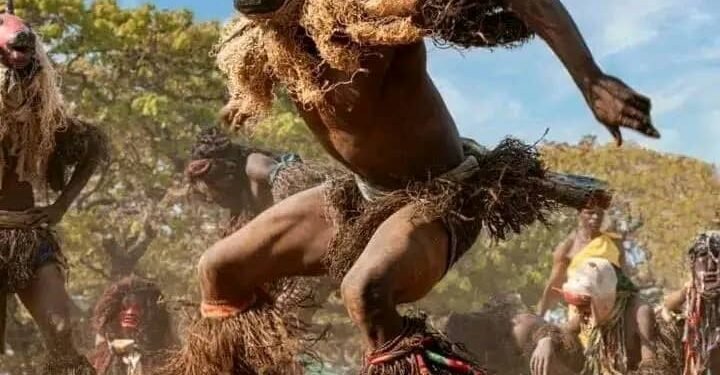Kulamba ceremony set for August 30
By Mast Correspondent
THE Kulamba Traditional Ceremony of the Chewa people is scheduled to take place on August 30, Chief Mbang’ombe, chairperson of the Kulamba Traditional Ceremony Organising Committee has announced.
This significant event is an annual gathering of the Chewa people, held in Mkaika Village, Katete District, Eastern Province of Zambia.
The ceremony is a vital part of Chewa culture, during which over 200 subordinate chiefs gather to pay homage to Kalonga Gawa Undi, the head of all Chewa chiefdoms.
It is a celebration of Chewa heritage, showcasing traditional dances, music and the tribe’s age-old customs, and an opportunity for members of the ethnic grouping to honour their ancestors and pay respect to their cultural traditions.
Kulamba features Nyau dancers, a secretive society that acts as spiritual intermediaries believed to communicate with the spirits of the ancestors. Their performances, including the Gule Wamkulu (The Great Dance), are a highlight of the ceremony.
The Nyau dancers play a crucial role in preserving Chewa cultural heritage and passing it down to future generations.
Kulamba also includes an annual initiation ceremony for young girls who have come of age, where they are taught skills and responsibilities of womanhood.
This part of the ceremony is an essential part of Chewa culture, marking an important milestone in a girl’s life.
The ceremony brings together people from Zambia, Malawi and Mozambique, promoting cultural exchange and unity among the Chewa people in the three countries.
This exchange helps to strengthen cultural ties and foster a sense of community among the Chewa people.
The Kulamba ceremony has a rich history, dating back to the 17th Century.
Although it was banned by colonial masters in 1934, Kalonga Gawa Undi revived the ceremony in 1984.
Since then, it has been an annual event, showcasing the resilience and determination of the Chewa people to preserve their cultural heritage.
The ceremony, including the Gule Wamkulu dance, has been recognised by UNESCO as an intangible cultural heritage.
The recognition highlights the importance of preserving cultural traditions and promoting cultural diversity.
The ceremony is a celebration of culture, unity, and tradition, offering a unique chance to witness the unity of communities across three nations. It’s an opportunity for people to come together and celebrate their shared cultural heritage.
Expect lively cultural performances, including the Nyau dance and Gule Wamkulu. These performances showcase the rich cultural heritage of the Chewa people and are an essential part of the ceremony.
Visitors are advised to be respectful of local customs, especially during initiation ceremonies. It’s essential to approach the ceremony with sensitivity and respect for the cultural traditions of the Chewa people.
The Kulamba Ceremony highlights the importance of preserving cultural traditions and promoting cultural diversity. It’s essential to recognize the value of cultural heritage and take steps to preserve it for future generations.
The ceremony is a testament to the community’s engagement and commitment to preserving their cultural heritage. The community’s efforts to promote and preserve their culture are commendable and worth recognizing.
The Kulamba Ceremony is a significant cultural event that showcases the rich cultural heritage of the Chewa people. It’s an opportunity for people to learn about and appreciate the cultural traditions of the Chewa people.
The Kulamba Traditional Ceremony is a celebration of Chewa culture, heritage, and tradition. It’s an essential part of the Chewa people’s identity and a testament to their resilience and determination to preserve their cultural heritage. The ceremony is a must-attend event for anyone interested in cultural diversity and heritage preservation.
As the Kulamba Ceremony approaches, it’s essential to recognize the importance of cultural preservation and promotion. The ceremony is an opportunity for people to come together and celebrate their shared cultural heritage, and it’s essential to ensure that the cultural traditions of the Chewa people are preserved for future generations.

























